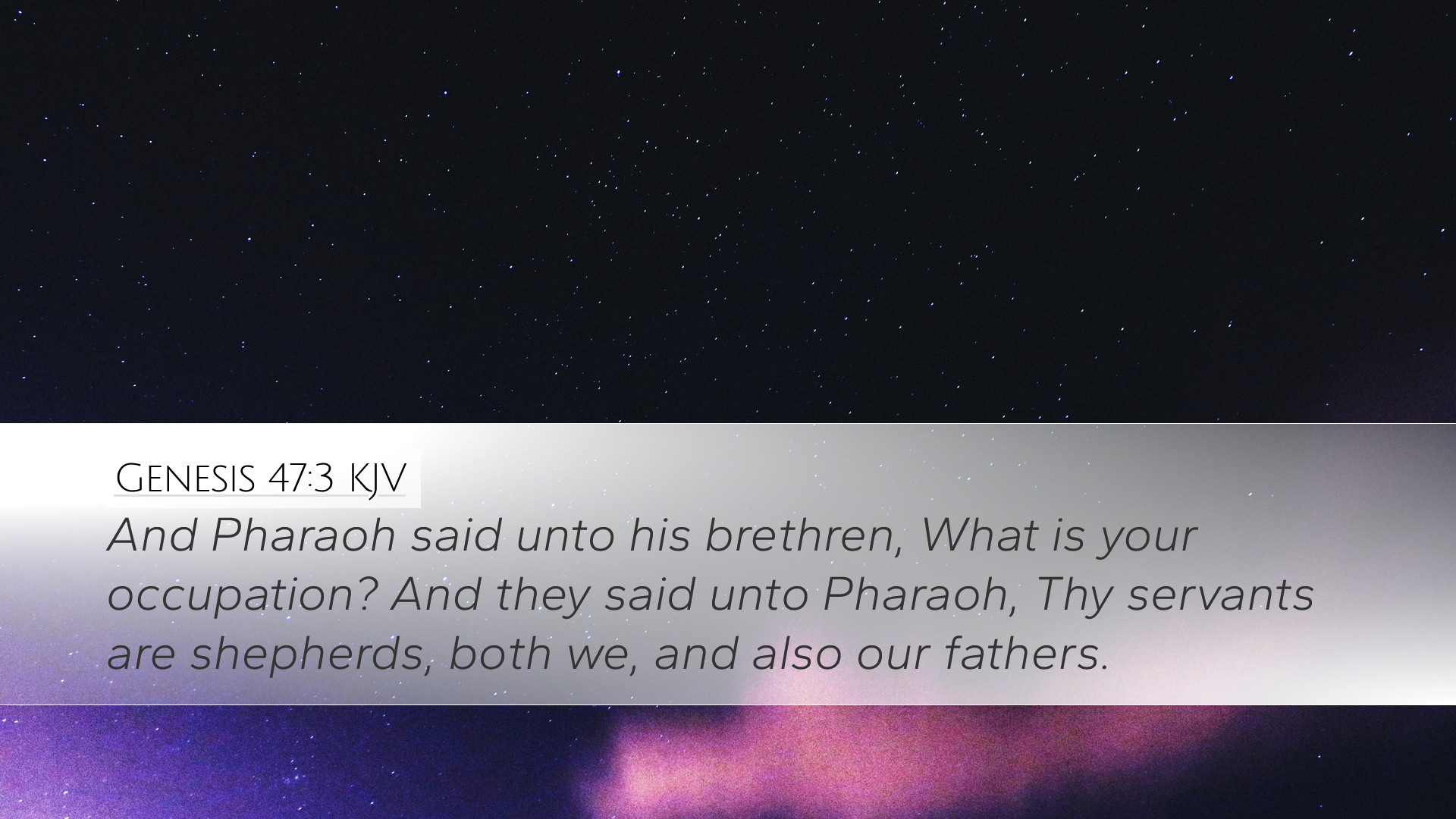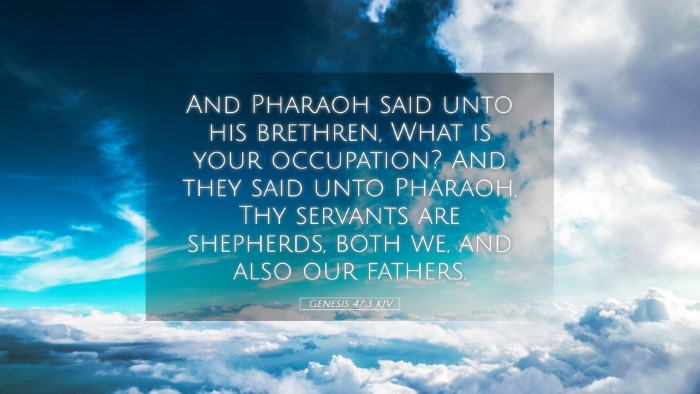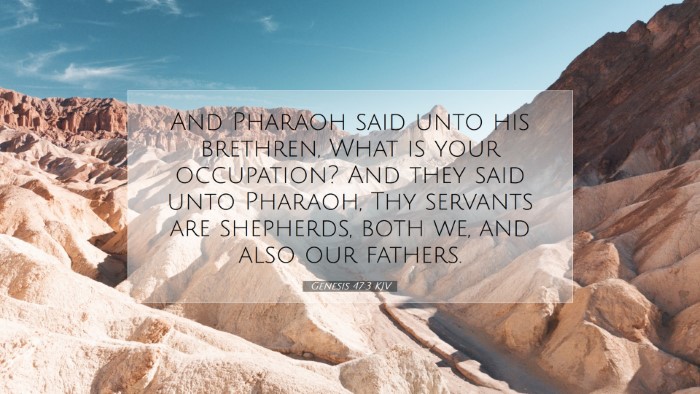Commentary on Genesis 47:3
In Genesis 47:3, we encounter a crucial moment in the narrative concerning Joseph and his family during the time of famine in Egypt. Jacob and his sons are presented before Pharaoh, allowing insights into their identity and purpose. This commentary consolidates perspectives from renowned public domain commentaries including those of Matthew Henry, Albert Barnes, and Adam Clarke.
Contextual Background
Genesis chapter 47 describes the interaction between Joseph's family and Pharaoh as they seek refuge in Egypt due to the severe famine. The verse reads:
"And Pharaoh said unto his brethren, What is your occupation? And they said, Thy servants are shepherds, both we and also our fathers."
Understanding the Verse
This interaction allows us to delve into the significance of their answer and its implications in the broader narrative. The response reveals multi-layered meanings about identity, vocation, and divine providence.
Identity and Heritage
Henry emphasizes the importance of their answer not just in immediate practical terms but also in demonstrating their identity as shepherds. Their profession links them to their heritage and the pastoral nature of their ancestral legacy. This highlights how God’s plan for His people encompasses their familial and occupational heritage.
The Role of Shepherds in Scripture
Barnes discusses the significance of being shepherds in the biblical context. Shepherding represents care, leadership, and the nurturing of a flock, which parallels the role that God embodies as the ultimate shepherd of His people. The mention of their occupation as shepherds holds theological implications, suggesting a deeper metaphor for their dependence on God’s guidance.
Cultural Implications
According to Clarke, the profession of shepherds was looked down upon in Egyptian culture. Egyptians, being a predominantly agricultural society, regarded herdsmen as undesirable. This context highlights the precarious position of Jacob's family. Their need to identify themselves as shepherds not only reflects their survival mode but also showcases their unwavering commitment to their traditional way of life despite being in a foreign land.
Theological Significance
At a theological level, the response emphasizes God’s providential care. Joseph’s rise to power and position as savior during the famine illustrates the overarching theme of God using circumstances for the good of His people.
God’s Sovereignty
Henry notes that the very fact of their presence in Egypt and their ensuing favor with Pharaoh is a testament to God’s sovereignty. God orchestrated events that led to their migration, ensuring Joseph would be in place to provide for them during the famine. Their identity as shepherds aligns with divine providence and a foreseen need for care and provision.
Faith and Response
Barnes reflects on the faith exhibited by Jacob’s family in responding honestly to Pharaoh. Their declaration recognizes their reliance on God’s leading and acknowledges their vulnerability in a foreign land. Their faith in God is underscored by their fidelity to their calling as shepherds, even amidst challenges.
Lessons for Today
This scripture offers profound lessons applicable to contemporary readers:
- Embrace Heritage: Just as Jacob’s family acknowledged their identity, believers today are encouraged to embrace their spiritual heritage and vocation in Christ.
- Faithful Witness: Their response serves as a reminder to live authentically as witnesses of faith, regardless of cultural perceptions or challenges.
- Trust in God’s Provision: The narrative reassures us of God’s providence in times of uncertainty. Trust in His plan is paramount for all believers.
Conclusion
Genesis 47:3 encapsulates key themes of identity, cultural dynamics, and divine providence. The interplay of these elements encourages deep reflection on one’s own vocation and place within God’s greater narrative. As pastors, students, theologians, and scholars, engaging with this text invites us to ponder how God’s sovereign hand guides our lives and vocations.


